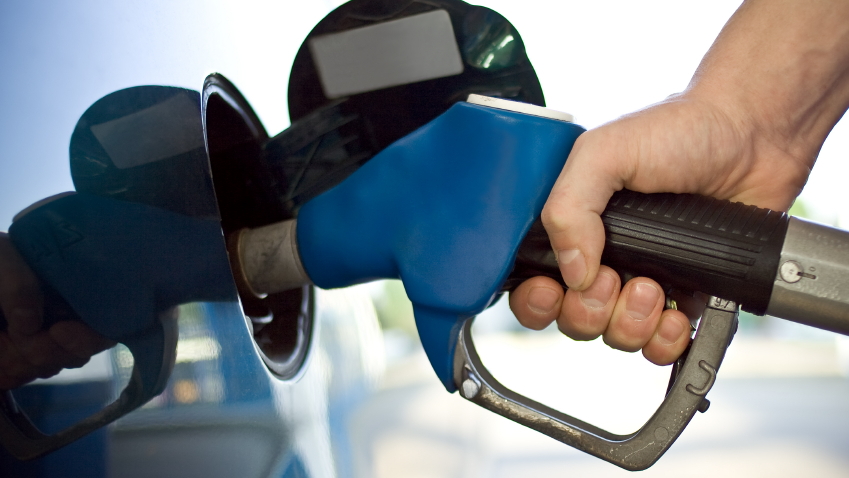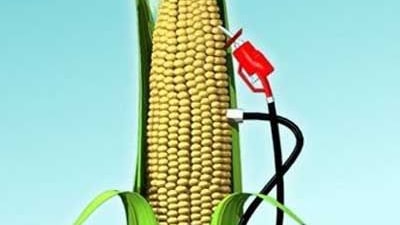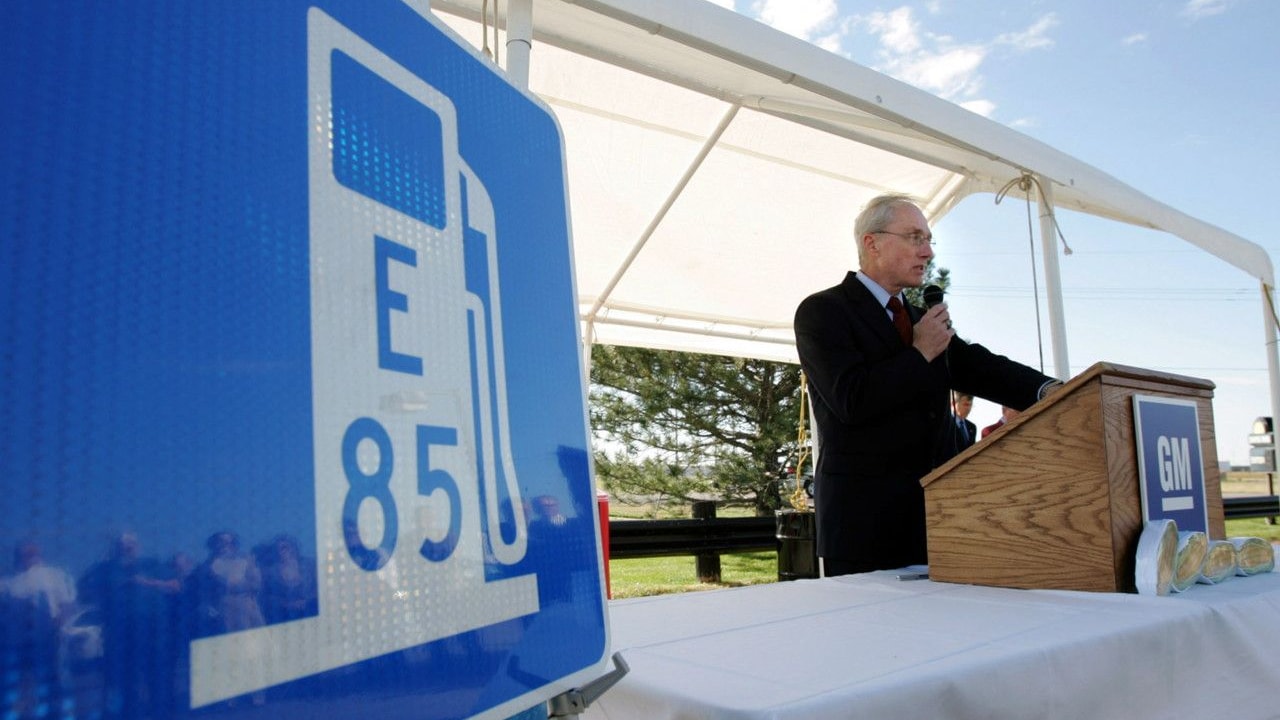E10
-

Even if you may not have heard of the Peak Oil theory, everyone knows that we'll continue to use more and more gasoline in years to come. Right? Well, errrrr, no. Maybe not. At least, that's the conclusion of both industry analysts and the oil companies themselves. The peak year for U.S. gasoline consumption to date was 2006, when we collectively used 374 million gallons every single day. Since then, a combination of factors--some temporary, like the recent recession, but others permanent--has cut demand and will continue to do so in future years. This year's use fell 8 percent from that 2006...
-
 EPA OKs More Ethanol In Gasoline, Only For 2007 Or Newer Cars
EPA OKs More Ethanol In Gasoline, Only For 2007 Or Newer CarsYesterday, the Environmental Protection Agency approved raising the proportion of ethanol in pump gasoline from 10 percent (E10) to as much as 15 percent (E15). It would be the first increase in ethanol percentage since 1978, when the 10-percent blend was approved. Roughly 70 percent of U.S...
John Voelcker -
 More Ethanol In Gasoline: 'Minimal Risk' To Old Cars, Study Says
More Ethanol In Gasoline: 'Minimal Risk' To Old Cars, Study SaysWe've written before about just how worried automakers are at proposals by the U.S. Environmental Protection Agency to increase the ethanol content of pump gasoline from 10 to 12 or even 15 percent. They fear it will damage older cars whose engines and fuel systems were never designed to handle...
John Voelcker -
 More Ethanol in Gasoline Bad For Existing Cars, Say Automakers
More Ethanol in Gasoline Bad For Existing Cars, Say AutomakersAdding more ethanol to gasoline may help the U.S. meet a Congressional mandate to use more of the renewable fuel, but it could damage many of the cars now on the road, say automakers. Last year, U.S. vehicle manufacturers went public with their alarm that the EPA might increase the permissible...
John Voelcker -
 Ford Doubles Down on Flex-Fuel Vehicles; Do Carbuyers Care?
Ford Doubles Down on Flex-Fuel Vehicles; Do Carbuyers Care?It must be something in the water. Yesterday, we learned that every 2011 Buick Regal will offer flex-fuel capability as standard. Now it's Ford's turn; the company announced today that it will have doubled the number of flex-fuel models it builds by the end of the year, fulfilling a 2006 pledge...
John Voelcker -
 Bogus Biofuels Blast Rebutted by Bentley Gent
Bogus Biofuels Blast Rebutted by Bentley GentAlmost a year ago, we called Bentley's much-touted biofuels strategy "bogus," in an alliterative headline to a piece that was much forwarded around the green-car world. Now we've had a chat with the very reasonable and polite David Reuter, Bentley's head of PR and communications. We still think...
John Voelcker -

We don't hear so much about ethanol these days, now that gasoline is back down to $2.50 a gallon. But we still get e-mails, so here's a post to answer the question: What's going on with flex-fuel cars? Short answer: Manufacturers are slowly increasing the number of vehicles they build that can handle both gasoline and ethanol. The problem is the availability of the fuel. Burning whatever's in the tank Flex-fuel cars are designed to run on any liquid fuel you may happen to put in the tank (although not diesel). Outside the U.S., Ford offers a flex-fuel Mondeo sedan. Even more remarkable, the...
-
 Adding Ethanol Alarms Automakers; Should You Worry?
Adding Ethanol Alarms Automakers; Should You Worry?Your car already runs on (some) ethanol, although you may not know it. Much of the gas sold in the U.S. is now actually a blend: 90 percent gasoline, 10 percent ethanol. It's known as E10, for the percentage of the total derived from the corn-based biofuel. Since 1978, new cars have been able to...
John Voelcker



